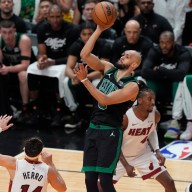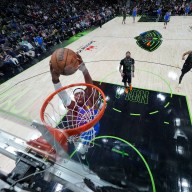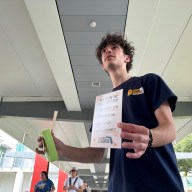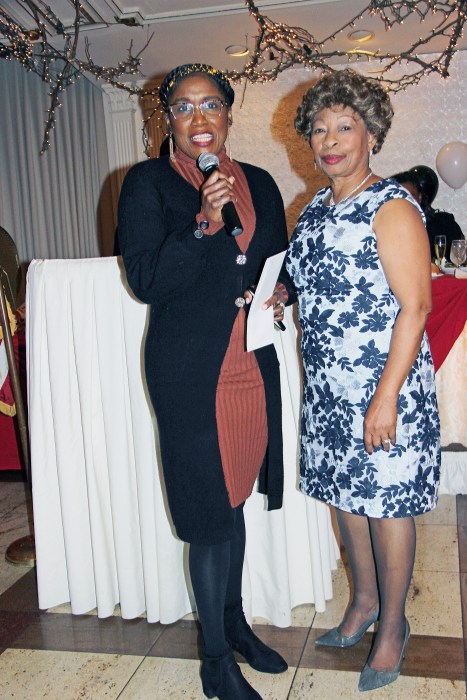getty file photo
Producer Michael Hirschorn has called shows like The Apprentice, “Darwinism set loose inside an entrepreneurial Habitrail.”
KEEPING IT REAL: Smart people are supposed to know that reality TV is irredeemable junk, which is why it’s amusing when a highbrow (or perhaps more realistically high-middlebrow) magazine like The Atlantic publishes something like Michael Hirschorn’s “The Case For Reality TV,” a defense of the genre that appears in this month’s issue.
Hirschorn is admittedly biased – he’s also the producer of shows like Celebrity Fit Club, DMC: My Adoption Journey and 20 Greatest Celebreality Moments for networks like VH1 and MTV. Previously, he’d written an enthusiastic piece about YouTube for The Atlantic, and starts his latest article with a reminiscence about being interviewed for the CBS Evening News as a representative of the reality TV industry for a piece that, when it ran, made it clear that the CBS Evening News didn’t approve, especially when confronted with news that a single episode of American Idol was watched by more people than the president’s State of the Union address on all the networks, combined.
“Is there an easier position to take in polite society than to patronize reality TV,” asks Hirschorn – rhetorically, since he obviously assumes that reality TV, like poverty and racism, is the sort of thing that right-thinking people obviously think will, alas, always be with us, which doesn’t mean that we shouldn’t try, when the time is right, to pass a law against the thing.
It’s been fifteen years since MTV gave birth to the genre with The Real World, and according to Hirschorn, it hasn’t thrived for merely economic reasons – the oft-cited theory that the relative cheapness of reality production helps networks pay for ever-costlier “quality” shows. It’s a hit, he says, because “reality TV is also the liveliest genre on the set right now. It has engaged hot-button cultural issues – class, sex, race – that respectable television, including the august CBS Evening News, rarely touches. And it has addressed a visceral need for a different kind of television at a time when the Web has made more traditionally produced video seem as stagey as Molière.”
The reference to a 17th-century French playwright was a winking nudge for The Atlantic’s readers – even if they hadn’t thought of Molière since their college girlfriend was in a production of The School For Wives, it’s doubtless flattering that he assumes they’ll nod at the reference with a knowing smile. Hirschorn does a great job showing how much more outlandish and improbable a show like The Real Housewives Of Orange Country can be than Desperate Housewives, the “quality” network show whose success it was meant to exploit. He calls The Apprentice “Darwinism set loose inside an entrepreneurial Habitrail.” All told, Hirschorn does a laudable job selling the products of his industry to the educated, affluent readers of The Atlantic – a small but intensely desirable demographic that marketing types are supposed to covet – but if the ratings are anything to go by, the sale was already made before he typed the first word.
















